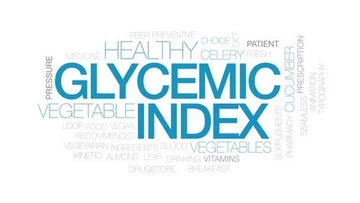Introduction:
When it comes to maintaining good health, minimizing added sugar in your diet is crucial. However, navigating the world of sugars can be confusing due to their various types and effects on our bodies. In this article, we will explore the four most common sugars: glucose, fructose, sucrose, and lactose, focusing on their metabolic processes and impact on overall health.
What is Sugar?
Sugars are a type of carbohydrate, following the formula Cn(H2O)n, where "C" represents carbon and "H2O" denotes water. Sugars can be classified as monosaccharides (single-molecule sugars) or disaccharides (sugars made of two linked sugar molecules). A useful tip to identify sugars is to look for words ending in "-ose," which includes glucose, fructose, sucrose, and lactose, among others.
Glucose
Glucose is a monosaccharide, often called the body's primary energy source. It is found in honey, golden syrup, dried fruits, and some fruits and vegetables. Glucose is the building block of most natural sugars, and all carbohydrates we consume eventually convert into glucose. The body regulates glucose levels through the interaction of insulin and glucagon, produced by the pancreas. Prolonged high blood glucose levels can lead to insulin resistance, inflammation, oxidative stress, and various health problems.
Fructose
Fructose is a monosaccharide naturally occurring in fruits and vegetables and is also present in table sugar and high-fructose corn syrup (HFCS) found in processed foods. Unlike glucose, fructose is mainly metabolized in the liver and does not raise blood sugar or trigger insulin release. However, excessive fructose consumption can lead to energy depletion, oxidative stress, inflammation, and fat accumulation in the liver, contributing to non-alcoholic fatty liver disease (NAFLD) and insulin resistance.
Sucrose
Sucrose, or table sugar, is a disaccharide composed of one glucose and one fructose molecule. When consumed, the enzyme sucrase breaks it down into its individual components, which are then metabolized separately. Moderate amounts of sucrose from whole fruits and vegetables are unlikely to harm metabolic health. However, excessive intake of added sucrose, especially when it includes fructose, can have negative effects on insulin resistance and overall metabolic health.
Lactose
Lactose is a disaccharide present in mammalian milk, and its breakdown requires the enzyme lactase. Lactose intolerance is common, as many people lose their ability to digest lactose as they age. While lactose triggers insulin release like other carbohydrates, its impact on insulin resistance varies depending on the individual. Dairy products containing lactose should be consumed with caution if lactose intolerance is an issue.
Conclusion
To improve metabolic health, it is essential to limit the consumption of added sugars, especially added fructose. Opt for whole foods that contain fiber, protein, and fat, as these components slow down the absorption of sugar. Avoiding sugary beverages and processed foods with added sugars can significantly reduce the risk of glucose and insulin spikes, leading to better overall health.





